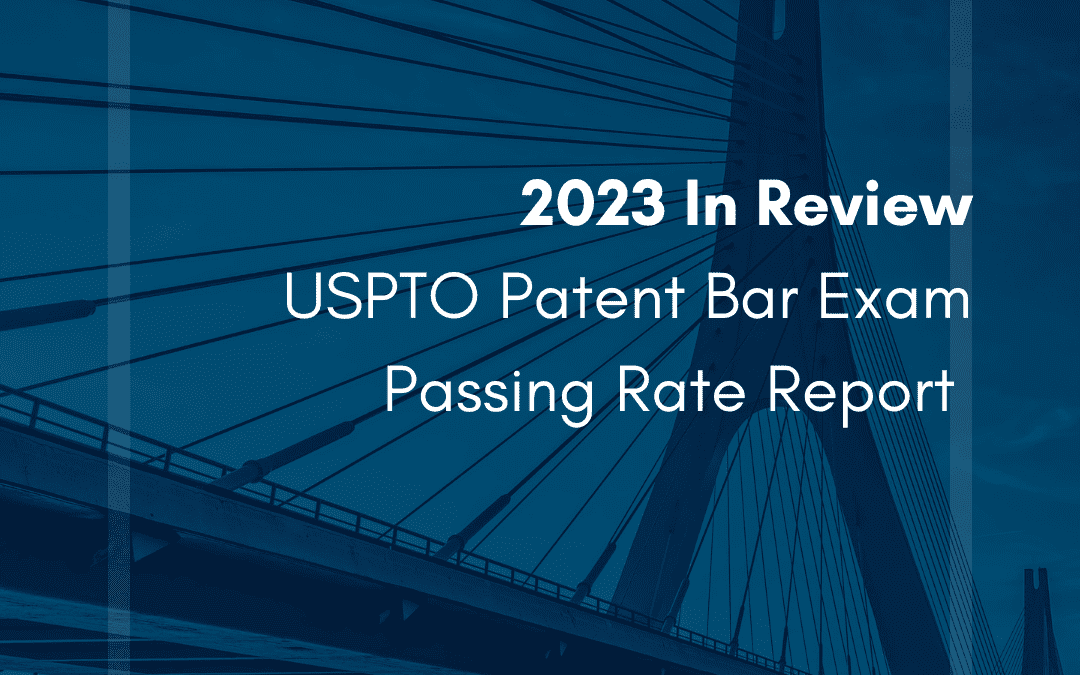Understanding the Traditional Approach to Patent Bar Review Courses
In the realm of patent bar review, the traditional approach has long been the cornerstone of countless preparation methods. Students would gather in classrooms, poring over thick textbooks and attending lectures to master the intricacies of patent law. This conventional method, though time-tested, often lacked the flexibility that modern learners crave. It relied heavily on fixed schedules and limited interaction, leaving little room for personalized study strategies tailored to individual needs. However, despite its drawbacks, the traditional approach was once the only option available to aspiring patent bar examinees.
The hallmark of traditional patent bar review courses was the reliance on in-person instruction. Students would spend hours listening to lectures, participating in group discussions, and seeking guidance from experienced instructors. While this method fostered a sense of community among learners, it also came with its own set of challenges. The pace of the course was often dictated by the instructor, leaving little room for self-paced learning. Additionally, students had to adhere to rigid schedules, making it difficult for working professionals or those with familial obligations to participate fully.
Moreover, traditional patent bar review courses were known for their focus on printed materials. From textbooks to practice exams, students relied heavily on physical resources to supplement their understanding of complex legal concepts. While these materials were invaluable in reinforcing key principles, they lacked the interactive and dynamic nature that characterizes modern learning tools. The static nature of printed materials limited students’ engagement and made it challenging to assess their progress effectively.
The Rise of Online Platforms in Patent Bar Preparation
With the advent of online platforms, the landscape of patent bar preparation underwent a profound transformation. Suddenly, aspiring patent bar examinees had access to a wealth of resources at their fingertips, breaking free from the constraints of traditional classroom settings. Online platforms offered a flexible and convenient alternative to in-person courses, allowing students to study at their own pace and in the comfort of their preferred environment.
One of the key advantages of online patent bar review courses is the ability to cater to diverse learning styles. Through interactive videos, engaging quizzes, and real-time feedback mechanisms, online platforms offer a holistic learning experience that resonates with visual, auditory, and kinesthetic learners alike. This multifaceted approach not only enhances comprehension but also fosters a deeper understanding of complex legal concepts, leading to improved retention and application of knowledge.
Furthermore, online platforms have revolutionized the way in which aspiring patent bar examinees can connect with instructors and peers. Through virtual forums, live webinars, and one-on-one coaching sessions, students can seek guidance and clarification in real-time, fostering a sense of community and collaboration that transcends geographical boundaries. This interconnectedness not only enhances the learning experience but also cultivates a supportive environment where students can learn from one another’s perspectives and experiences.
In addition to fostering a sense of community, online patent bar review courses offer unparalleled flexibility in terms of study schedules. Students no longer have to juggle competing priorities to attend classes; instead, they can design a study plan that aligns with their personal and professional commitments. This level of autonomy empowers learners to take ownership of their learning journey, setting the stage for a more efficient and effective preparation process.
Advantages of Online Learning for Patent Bar Exam Candidates
The shift towards online learning in the realm of patent bar exam preparation has brought about a myriad of advantages for candidates looking to excel in their exams. One of the standout benefits of online learning is the accessibility it offers to a diverse range of learners. Whether you’re a working professional, a full-time student, or a parent managing multiple responsibilities, online platforms provide the flexibility needed to accommodate your unique schedule and learning preferences.
Moreover, online patent bar review courses leverage cutting-edge technology to deliver engaging and interactive learning experiences. Virtual simulations, gamified quizzes, and adaptive learning algorithms are just a few examples of the innovative tools at candidates’ disposal. By harnessing the power of technology, online platforms create immersive learning environments that not only capture candidates’ attention but also enhance their retention and application of key legal concepts.
Another significant advantage of online learning for patent bar exam candidates is the personalized support and feedback mechanisms embedded within these platforms. Instructors are readily accessible through virtual office hours, discussion boards, and email correspondence, providing timely guidance and clarification whenever needed. This tailored support ensures that candidates receive individualized attention and assistance throughout their exam preparation journey, leading to a more effective and fulfilling learning experience.
Furthermore, online patent bar review courses offer a wealth of resources at candidates’ fingertips, ranging from comprehensive study guides to extensive question banks. These resources are available 24⁄7, allowing candidates to review concepts, practice sample questions, and track their progress at any time and from any location. This on-demand access to high-quality study materials empowers candidates to study efficiently and effectively, maximizing their chances of success on the patent bar exam.
Innovative Tools and Techniques in Modern Patent Bar Review Courses
Modern patent bar review courses are at the forefront of educational innovation, incorporating a diverse array of tools and techniques to enhance the learning experience for candidates. One such technique is the use of spaced repetition algorithms, which optimize long-term retention by strategically scheduling review sessions based on each candidate’s unique learning curve. This evidence-based approach not only reinforces memory but also ensures that candidates retain key legal concepts well beyond the exam period.
Another innovative tool in modern patent bar review courses is the integration of artificial intelligence (AI) for personalized learning. AI algorithms analyze candidates’ performance data to identify strengths, weaknesses, and learning patterns, enabling instructors to tailor study materials and recommendations to each individual’s needs. This adaptive learning model not only streamlines the study process but also caters to the diverse learning styles and preferences of candidates, maximizing their overall learning outcomes.
Moreover, modern patent bar review courses leverage virtual reality (VR) simulations to provide candidates with immersive learning experiences in a virtual courtroom setting. Through VR technology, candidates can engage in realistic legal scenarios, hone their analytical skills, and test their decision-making abilities in a risk-free environment. This hands-on approach not only enhances conceptual understanding but also equips candidates with the practical skills needed to excel in the high-pressure environment of the patent bar exam.
In conclusion, the evolution of patent bar review courses through online learning has revolutionized the way in which aspiring patent bar examinees prepare for success. By embracing innovative tools, interactive platforms, and personalized learning approaches, modern patent bar review courses offer a dynamic and effective learning experience that caters to the diverse needs and preferences of candidates. As technology continues to shape the landscape of education, online platforms are poised to redefine the future of patent bar exam preparation, paving the way for a new era of success and achievement in the legal profession.













